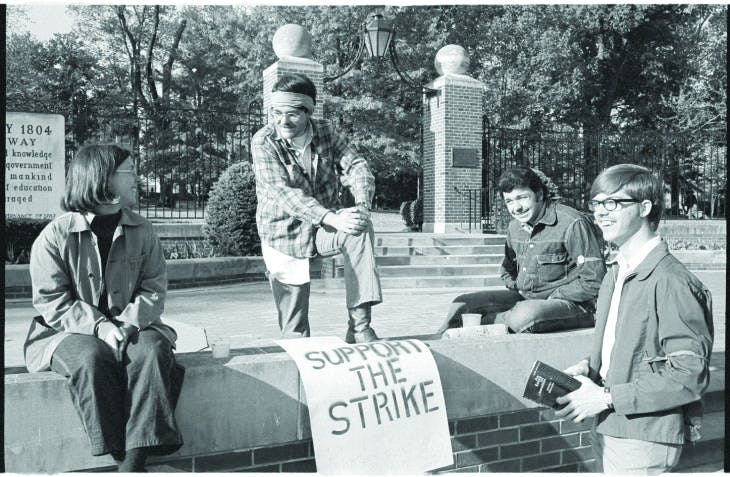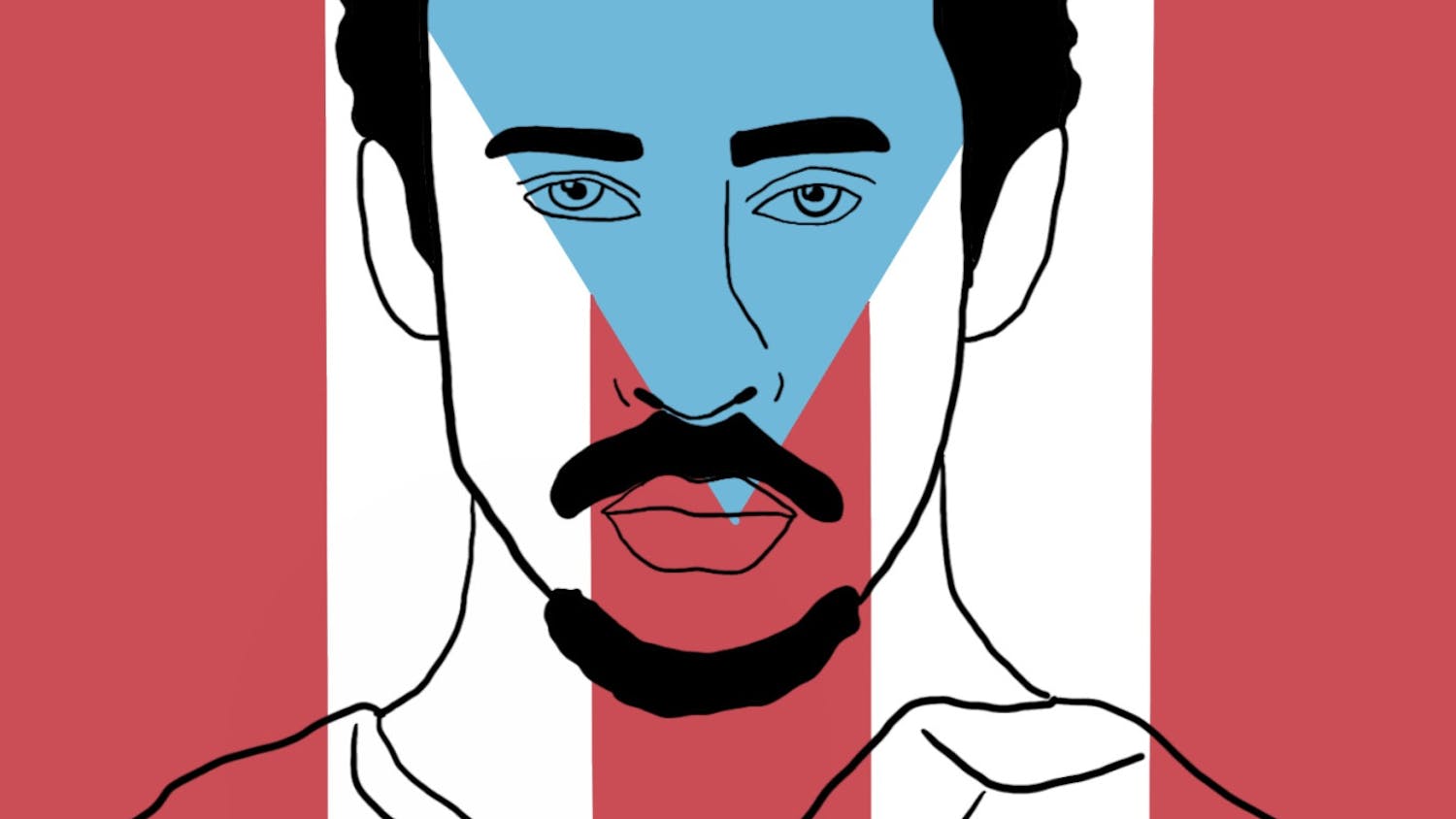The recent closure of Ohio University due to the coronavirus is the first time the university has closed its doors to students and faculty since 1970. In an almost perfect parallel, 50 years ago all students were instructed to leave campus and university-related activities were canceled because of riots.
Leading up to May 1970, widespread unrest rapidly spread across America’s college campuses. Many students opposed and protested the Vietnam War, while others fought for the civil rights movement. This whirlwind of events culminated on May 4, in which four students were killed while protesting at Kent State University. The Kent State shootings immediately drove many college students to fight even harder, forcing many colleges in Ohio and across the country to shut down.
Andy Alexander, a class of 1970 senior who studied journalism, experienced first-hand when OU attempted to stay open, despite the fact that demonstrations were becoming increasingly violent.
“Many professors moved their classrooms out onto the College Green and opened their classes up to anyone,” Alexander, editor-in-chief of The Post at the time, said. “It was actually, intellectually, a very exciting time because you would walk over to College Green and you would see these clusters of people and one might be discussing policy in Vietnam, one might be discussing gender equality.”
Despite the academic activities that took place during the day, Alexander recalled Athens becoming violent at night. Repeated bomb threats and false fire reports instigated by protestors eventually became reality when both Nelson Commons and the ROTC supply room underneath Peden Stadium were firebombed, resulting in hundreds of thousands of dollars of damage, Alexander said.
“Students awoke to a situation where they could smell tear gas all over town,” Alexander explained. “As they wandered out and got word that the university was closed, they wandered to uptown Athens. There was a uniformed national guardsman with a loaded weapon in every single parking space throughout Athens.”
OU informed students that it would reschedule its 1970 commencement, canceling all other university-related activities immediately. Tom Hodson, another class of 1970 senior who studied journalism, recalls that students were given the choice of either taking their current grades as their final or opting for a pass/fail grading system, one similar to the alternative grading system offered today. He remembers Athens was incredibly hectic the morning OU’s closure was announced.

“They told us that they were closing the school and that people had to be out of their housing and off campus within 48 hours,” Hodson, associate editor of The Post at the time, said. “It was a very quick exit from campus under very dire circumstances. I remember the tear gas still hanging in the air, it wrecked my sinuses for about six months. It was sort of a hollowed feeling, like, ‘Oh, it’s all over. We’re going home. School’s done.’”
Students experienced a strong feeling of disconnect as they left Athens in 1970, similar to what many Ohio University students are feeling today amidst the coronavirus pandemic. However, Hodson explained that today’s students have so much more connectivity. Programs like FaceTime, Microsoft Zoom and even the ability to text and email is a privilege many students that are now self-isolating take for granted.
“Stay in touch with your faculty members, stay in touch with your fellow students,” Hodson said. “Stay safe and stay distant but stay connected. It’s so important because we were disconnected from our school work and disconnected, in my situation, from The Post. It was my life and it was over, it was done. We couldn’t do anything. It all just came to a halt.”
Former OU President Rod McDavis, who was also part of OU’s class of 1970, explained that hearing the news the university was shutting down for the second time in OU’s 216-year history immediately brought him back to 1970.
“It was a flashback for me,” McDavis said. “Different circumstances in 2020, but certainly something that could adversely impact the life of students. I think when it reaches that level it’s important enough to change course. As a young student back in 1970 I was frustrated, I was upset. In hindsight, I clearly understood why the leaders of the university made the decision they made.”
McDavis emphasized that, in 1970, the school was mainly shut down due to national concerns. In 2020, COVID-19 is a pandemic, and therefore is a worldwide issue with international impacts. To him, this makes the closure of OU just as crucial, if not more so.
“I certainly align myself with the graduating class of 2020 from the standpoint of not being able to participate in the commencement,” McDavis said. “It’s OK to feel frustrated and angry. Understand that the reason that it’s being done is in the best interest of the students.”
Read more about the 1970 riots:
https://media.library.ohio.edu/digital/collection/studentnewspapers/id/42494
https://media.library.ohio.edu/digital/collection/studentnewspapers/id/42266
https://media.library.ohio.edu/digital/collection/studentnewspapers/id/42407
https://media.library.ohio.edu/digital/collection/studentnewspapers/id/42459






